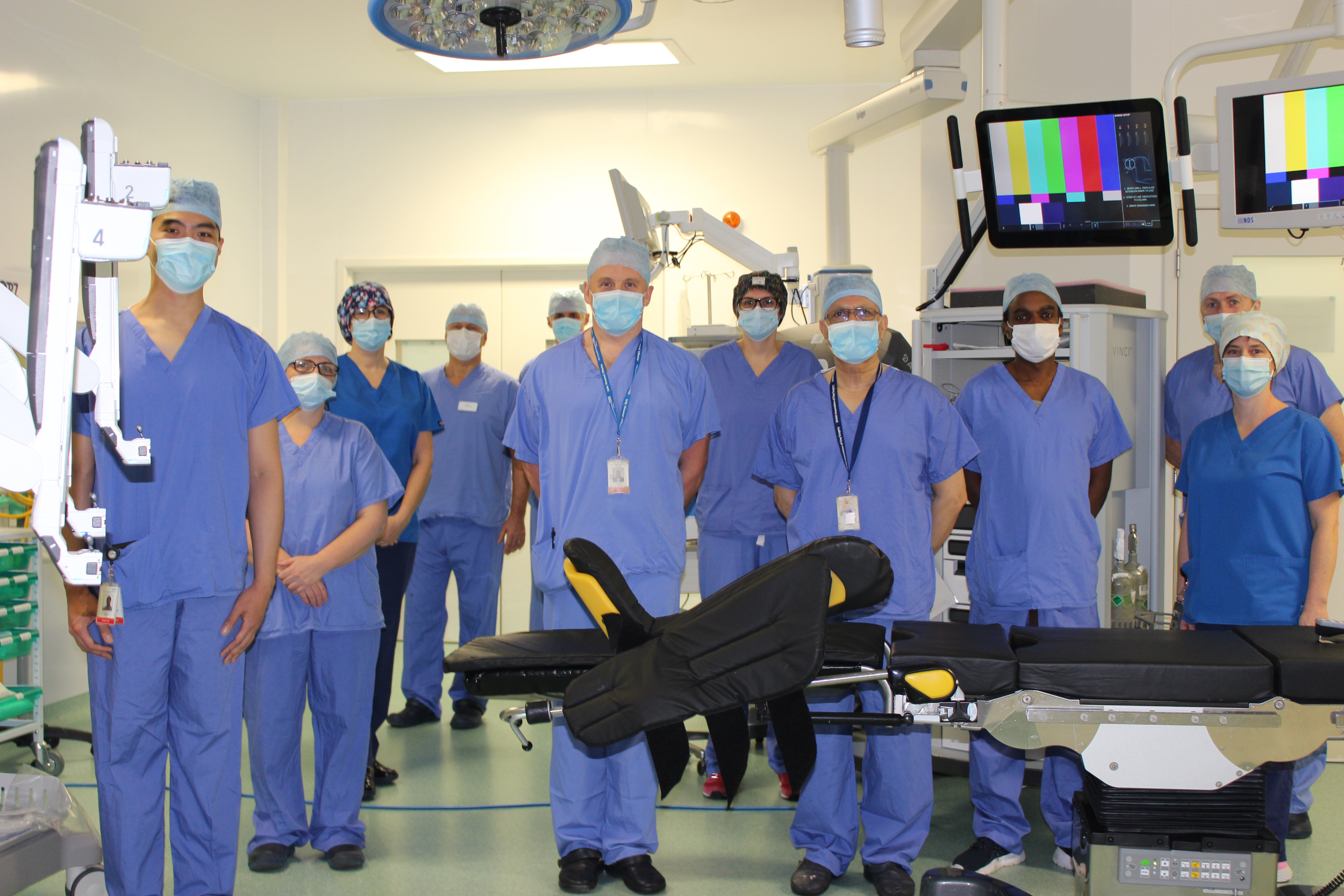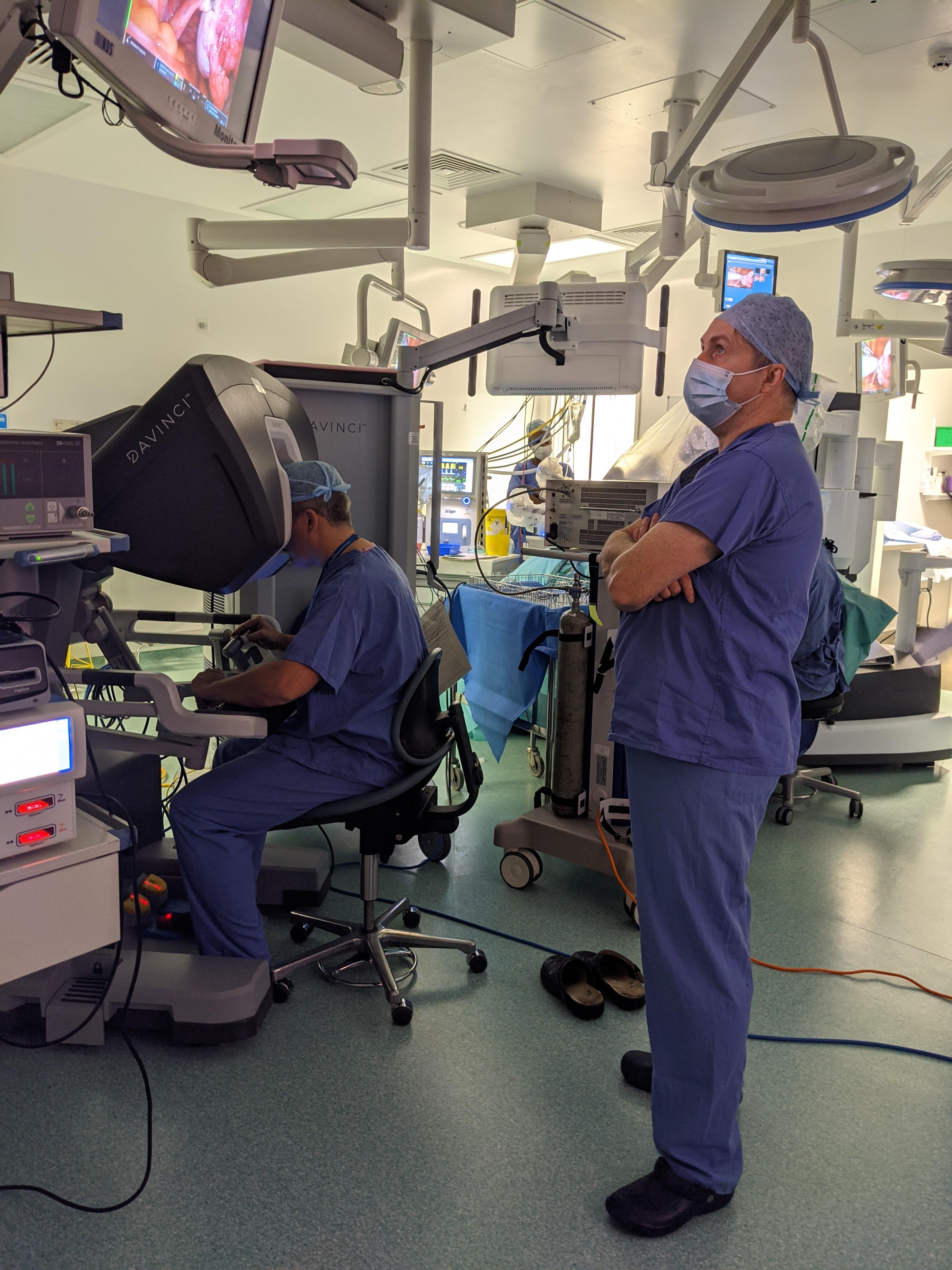A patient with severe endometriosis has been given the chance to undergo the first Gynaecological robotic surgery at East Lancashire Hospitals NHS Trust, after her diagnosis left her in pain since she was eighteen years old.
Mrs Louise Cooper Heys underwent a hysterectomy, a procedure where the womb is removed, but instead of using traditional keyhole surgery, a robot was used to assist in the surgery instead. During the surgery, the robot holds and moves the instruments and the camera inside the patient, which a surgeon controls from a console away from the bedside.
Mrs Heys, who is 37 and lives in East Lancashire, was chosen to be the first to undergo the robotic procedure after her endometriosis meant that the dissection required in her hysterectomy would be more complex, and the robot enables the surgeon to see and dissect the tissue more clearly, even in a confined space such as the pelvis.
Following the successful operation, she said:
“It was a bit of a shock being told I would be the first patient to undergo this procedure, but my surgeon explained how it would be less invasive so I thought let’s try it. Having the robotic surgery saved me having to be cut open during surgery, and I’m not in as much pain now as I thought I would be. The whole process was absolutely brilliant and I’m so grateful that I was able to have this robotic procedure.”
Robotic surgery is already used across the Trust, but this is the first time it has been used in the Gynaecology department. The benefits of using the robot are that post-operative pain is reduced for the patient, and the risk of surgical complications is reduced.
Mr Mark Willet, Gynaecological Surgeon at East Lancashire Hospitals Trust, has been working in the field for 25 years, but this was his first time using the robot during surgery.
He said:
"Louise was my first case using the robot for surgery and I'm really pleased with the outcome for her. Like all surgical procedures when you are training you need guidance and support from colleagues who have experience of the procedure themselves, and I was very fortunate to have two surgical mentors from the Christie Hospital in Manchester. Having this robot for Gynaecology surgery at ELHT will help benefit many patients in the future in providing reduced risk of complications and quicker recovery post-operation, so I'm really pleased we have managed to implement this at the Trust."




